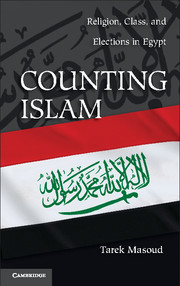Book contents
- Frontmatter
- Contents
- List of Figures
- List of Tables
- Preface
- Acknowledgments
- A Note on Transliteration
- Introduction: An Islamist Monopoly
- 1 Explaining Islamist Dominion
- I ISLAMISTS AND THEIR RIVALS IN AUTHORITARIAN ELECTIONS
- 2 Clientelism and Class: The Tragedy of Leftist Opposition in Mubarak's Egypt
- 3 The Islamic Machine?
- 4 Winning in the “Well-Run Casino”
- II ISLAMISTS AND THEIR RIVALS AFTER THE “ARAB SPRING”
- Bibliography
- Index
3 - The Islamic Machine?
Published online by Cambridge University Press: 05 July 2014
- Frontmatter
- Contents
- List of Figures
- List of Tables
- Preface
- Acknowledgments
- A Note on Transliteration
- Introduction: An Islamist Monopoly
- 1 Explaining Islamist Dominion
- I ISLAMISTS AND THEIR RIVALS IN AUTHORITARIAN ELECTIONS
- 2 Clientelism and Class: The Tragedy of Leftist Opposition in Mubarak's Egypt
- 3 The Islamic Machine?
- 4 Winning in the “Well-Run Casino”
- II ISLAMISTS AND THEIR RIVALS AFTER THE “ARAB SPRING”
- Bibliography
- Index
Summary
If the politics of patronage and clientelism during the Mubarak era decimated the Egyptian left, they seemed to have had rather less of an effect on the Muslim Brotherhood. In 1987, 2000, and 2005, the movement established itself as the largest opposition bloc in the Egyptian parliament. And in the elections where it failed to secure significant representation – 1990, 1995, and 2010 – it had either boycotted the elections outright (as in 1990) or was the subject of such a systematic effort by the regime to prevent its candidates from campaigning or its cadres from getting out the vote that it withdrew after the first round of balloting (1995 and 2010). In fact, when one considers the barriers that the Muslim Brotherhood had to overcome to participate in and win Egyptian elections, its performances are nothing short of remarkable.
The Brotherhood was officially banned by the monarchy in 1948 and again by Nasser's regime in 1954 (Mitchell 1993; Makram-Ebeid 1989). Though allowed to resume activities in the early 1970s, the ban on the group was never formally lifted, and its legal limbo thus allowed the regime to periodically arrest its otherwise law-abiding members on the Orwellian charge of being part of an illegal organization (albeit one that the regime allowed to run for and win seats in parliament). Moreover, the Brotherhood could not formalize its status by registering as a political party because Article 4 of the law regulating political parties (Law 40 of 1977) explicitly banned parties formed on the basis of religion (in addition to geography, gender, or other factional identities).
- Type
- Chapter
- Information
- Counting IslamReligion, Class, and Elections in Egypt, pp. 74 - 92Publisher: Cambridge University PressPrint publication year: 2014

